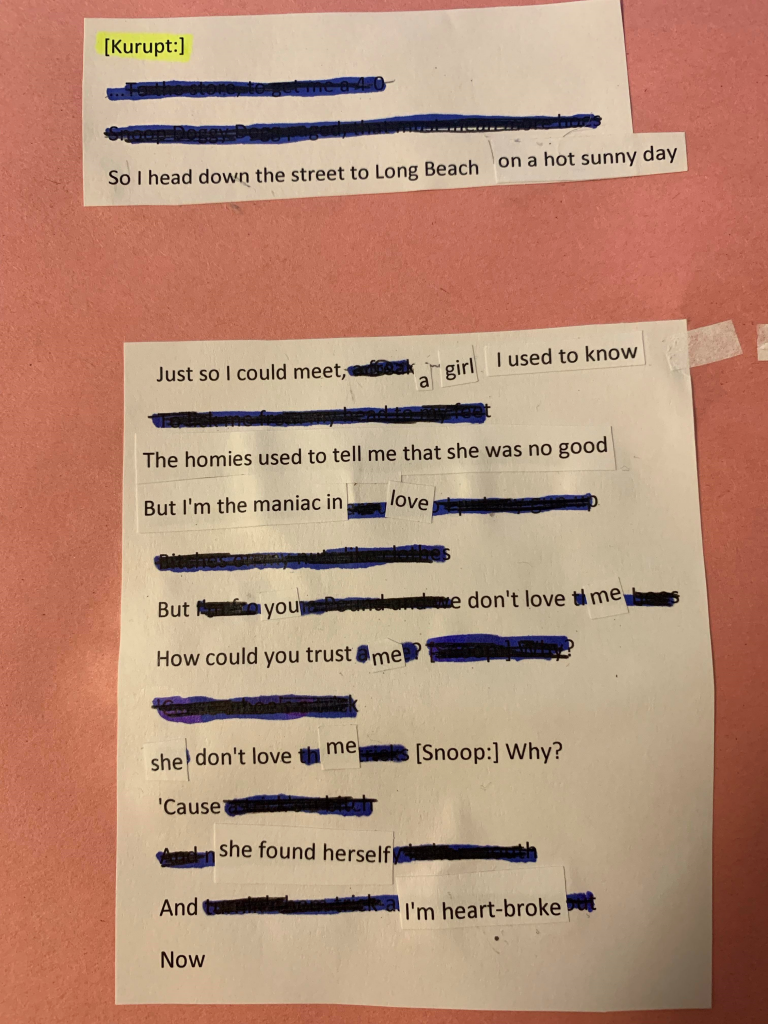The No Name Woman is forced to keep silent from the very second that her baby is conceived. Knowing her status in China in 1924, the No Name Woman does not tell anyone about what happened to her and who did it. Whether it was rape or consensual, she is forced to be silent by the man who slept with her. On page 6 we read that she is kept a man’s “secret evil”. The man who partnered with the No Name Woman in the adultery is also keeping silent. He does not announce he is the one to impregnate her, leaving it a mystery. The narrator questions if the secret man is so silent that he chooses to hide behind a mask during the house raid. He participates in the punishment towards the No Name Woman, all while silently sharing a secret with her. On the bottom of page 13 we read that after the raid, “…the family broke their silence and cursed her”. She runs away from the house, far enough to no longer hear their cursing voices until she is in silence once again, and gives birth in the pigsty. Later that night, she chooses an eternal silence by committing suicide. The last image we get of the No Name Woman is that she is a weeping ghost, waiting silently by the water to pull down a substitute.
“You must not tell anyone what I am about to tell you”. From the very first line of the book the readers know that there is a secret that should be kept silent. The narrator is told a single story about her aunt and is directed to not share the story with anyone else. Not only is the narrator asked to keep quiet of the single story, but she also has to keep silent of any questions she has about the truth and falsehood of the story. We know that she’s told to not bring it up to her father, so no questions can be answered by him, but since the narrator doesn’t even know her aunts name, there is no opportunity for her to go outside of her home and ask questions about her aunt to others. Any questions she wants to ask about her aunt are immediately silenced and they’re forced to be kept to herself, since her aunt essentially has no name, and essentially never existed. While she is imagining what happened to her aunt, the narrator potentially could have touched on the truth of the aunt’s story, but she will never know. If that is the case, the truth and the No Name Woman’s story is silenced once again. The narrator says she has participated in the family’s punishment and the silence by not asking for details after hearing the story twenty years ago. The narrator believes she is being haunted by her aunt’s ghost because after fifty years of neglect, the silence is broken when she writes of her aunt.
Kingston’s writing shows that her aunt’s life story isn’t decided by something that she did or didn’t do, but rather it is decided by the way that her survivors have told her story. The power of the story of the No Name Woman is entirely in the hands of the storyteller. Perhaps this same story could be used to show the cruel and unethical treatment of women in China, but the way that the mother tells the story is a warning to her daughter, implying that the aunt was lustful and chose to commit adultery (whether this is the truth or not). Kingston hears that single story and finally questions the truth, offering the readers another interpretation of it. The story we read from Kingston blurs the lines between truth and falsehood, making it difficult to decipher accurate information about the No Name Woman.
What are the dangers of the single story the mother tells, or should it remain the way it is (as a warning)?
Kingston says that her aunt’s ghost haunts her and doesn’t always mean her well because in Kingston’s writing, she is “telling on her”. Do you think it would have been better off for her mother to have kept the silence, and for there to be no story at all?

